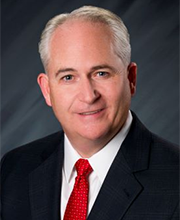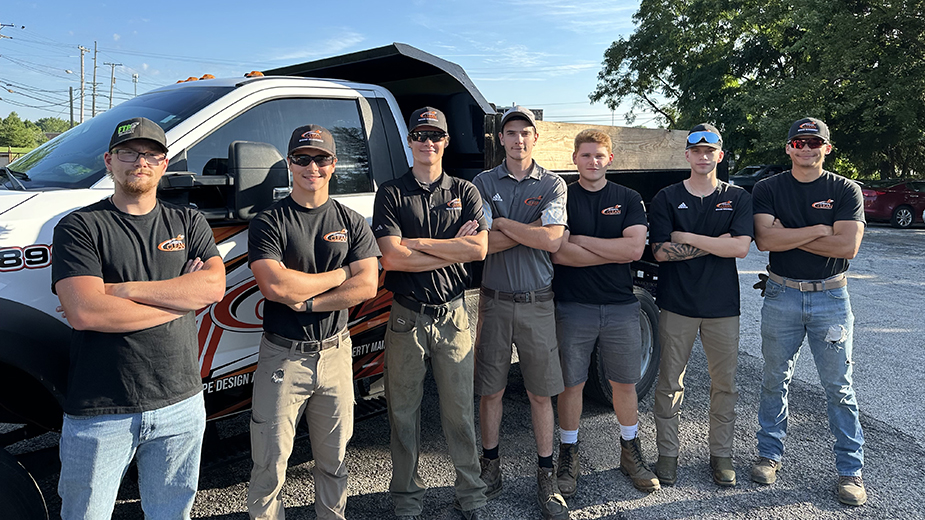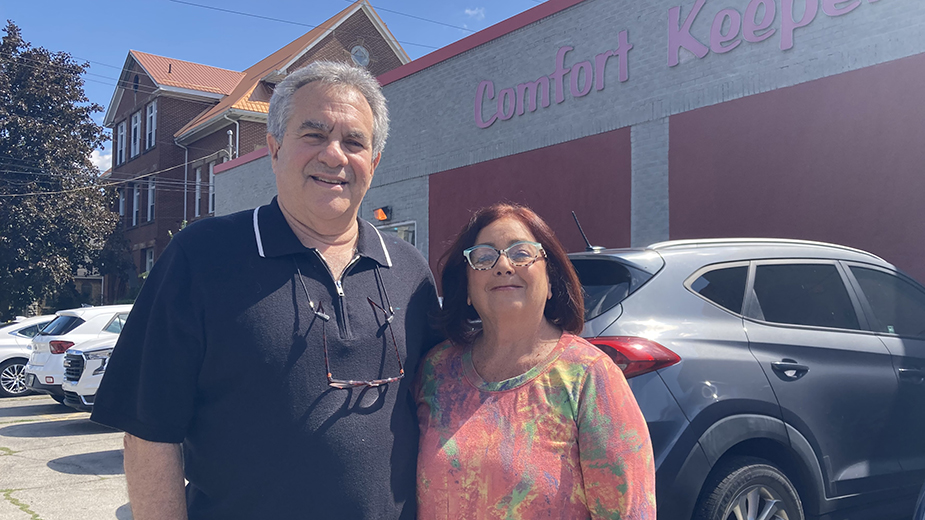How Family Businesses Navigate Change
YOUNGSTOWN, Ohio – Rob Cochran, chairman and CEO of #1 Cochran, says his father was a consummate salesman with a passion for his business and who would not accept less than whatever his goal happened to be.
Cochran remembers his father working a lot. He only got to spend a couple of years learning from his father before he took ill. If anything, Cochran says his father taught him perseverance.
From his father’s single automobile dealership, Rob Cochran has expanded the business to more than 30 dealerships, a chain of independent collision centers and parts logistic centers.
“We’re proud of the growth,” Cochran says, adding growth is not his focus – quality is. But then quality naturally leads to growth.

“While I certainly feel the ups and downs of the business cycle and the ups and downs of the day to day, most of the time my view is affixed further away, to where we are going and what that will look like,” Cochran says. “That vision has always given me strength and hope in both good times and bad.”
Cochran is a father of five and each of his children may choose to join the company one day. The oldest daughter has been part of the business for a couple years and the others are at various stages of early adult life. He encourages them to seek their own routes, like going to school and working somewhere else, before deciding if their path leads back to the family business.
“They are just young people in their early to mid-20s figuring things out,” Cochran says. “We encourage that. We think that that time for them is really important, just to think about what it is that they want to do, because if they want to commit to the organization at some point, they need to be prepared to commit.”
Cochran believes before the next generation can come into the family business they should pass the character test and the competency test. Do their goals and values align with the company? Will they be able to be candid and fully engaged? What skills do they inherently have, or can acquire, to bring into the business?
Communication
Cochran believes one of the biggest skills they need is communication.
The manner in which siblings communicate can be established before they learn language, he says. So when they are adults and communicating in a business setting, it is important to have the discipline to keep any family dysfunction that may have developed, even back in childhood, out of the picture.
Tim Petrey, CPA, managing partner for HD Growth Partners and CEO of White Glove Payroll, has worked with a lot of businesses in transition and agrees communication is important for both running a successful family business and transitioning one.
“If you don’t start with good, honest communication, you’re kind of dead before you start,” Petrey says. “You start building plans based on what you think someone else wants and that never really works.”
Petrey recommends a mediator, someone to help those in the family business communicate with each other about expectations down the road and whether passing the business onto family is really the best idea for those involved.

“Sometimes it’s just tough to be honest with your boss or be honest with your dad,” Petrey says, adding there can be pressure to tell them what you think they want to hear. “So, I think it is important for someone to really come in and help mediate and have those honest conversations so people can speak freely.”
Additionally, Petrey notes the next generation may not be passionate about the business, be unprepared to run it or even feel the pressure to not disappoint their parents.
“For many people, a far worse failure than any financial failure is thinking – every morning when you wake up and when you go to bed at night – that you’re fearful of destroying the business that you watched your parents or grandparents put their blood, sweat and tears into,” Petrey says.
Petrey notes it may be better to realize that business has served the family well, but for the future it may be better to leave it in the hands of a management team or sell it, invest the money and allow family members to pursue their own passions with their inheritance.
But how do you fairly divest when some of the children are interested in running the business and others are not?
Succession Planning
Tim Reardon, an attorney and partner-in-charge of the Youngstown office of Brouse McDowell, points to an example of a family that has five children, but only one of them wants to be involved in the business. Perhaps that child has passed up other opportunities to stay on and help.
“Do you transfer ownership upon your death to one of your five children or should there be a sale with the proceeds to be shared among the remaining heirs?” Reardon asks.
He works with businesses, including family businesses, navigating estate and business succession planning.

Every family he advises has a unique history and dynamic and no family business succession plan is the same. Creating a viable plan can involve difficult conversations and include knocks on the door by investment bankers or competitors interested in buying the business.
Another consideration is the family legacy. Perhaps the business has been a pillar of the community and very supportive of the community.
“Selling the business to an out-of-state buyer without roots in the community could possibly have a negative impact on the ability of the family-owned business to support institutions like Youngstown State University or the Butler art institute,” Reardon says.
He also sees the pressure of filling the shoes of a “multitasking, dynamic parent” as very difficult, especially if those expectations are unrealistically high.
However, the skills of the next generation in fields such as information technology, cybersecurity, and artificial intelligence, can help them to lead the business forward. With mentorship in areas where they might not be as proficient, such as human resources issues, negotiating with unions, financing new equipment and understanding insurance requirements, the next generation can make its own mark.
“More often than not, the younger generation is able to step up to the plate and carry on the tradition and successfully take the business to the next level,” Reardon says. “Careful planning and mentorship are the keys to success.”
Iron City Wood Products
Tina Yanssens, vice president of Iron City Wood Products Inc., is a second-generation owner of a company currently adding the third generation.
When her father lost his job in 1987, he started the pallet business in just six weeks, utilizing money he secured through a home equity loan, as well as similar loans obtained by the couple’s 10 combined siblings. He leased a property through land contract on Wilson Avenue in Campbell and obtained contracts for pallets for the mills in the area. They purchased a forklift, two trailers and a tractor-trailer truck.
“But had the family members not stepped up to do that, none of this would have been a reality, even though my dad knew what he was doing – he was a mechanic by trade, a truckdriver by trade and a natural born salesman,” Yanssens says.
The business moved to its site on Albert Street in Youngstown in 2012.
Iron City Wood builds new custom pallets for customers and recycles old pallets by replacing broken boards or reutilizing boards. For pallets beyond their life, Iron City grinds them down and dyes them to create mulch.
Yanssens says they pride themselves in building long-term relationships with customers and providing quality service. She points to a time when the entire family got up from Easter dinner and went to work fulfilling a pallet order for a customer who had a new purchasing agent and neglected to order what they needed for their operation during the week.
Iron City is currently investing $600,000 in a saw that will increase their production levels. The new piece of equipment will allow the company to saw and sort 20,000 boards each day – the amount she says they currently do in a week.
Some of their current saw operators will be shifted to building and repairing pallets.
While Yanssens’ husband works in sales, she calls herself the overlap on the Venn diagram, overseeing much of what is happening, including in the office.
One son is working for the business now as a project manager, getting the shop organized with the new 100-foot long saw on the way. Her son-in-law is serving as the safety and production coordinator. Another son, a senior at University of Mount Union, will be back working for them this summer.
Yanssens says the next generation members all bring great ideas, but sometimes with steep price tags and her father always cautioned her that in business you cannot turn a ship on a dime without capsizing it.
“I’m trying to tell the third generation, ‘I love your ideas, but this is what is in our budget and so right now we’re going to tackle this idea and then we’ll tackle the next one and the next one,” says Yanssens.
“You have to be able to negotiate amongst the family members and it’s nice to be able to have an adviser that can be that unbiased mediator.”
Yanssens has signed up for an exit planning seminar through the Youngstown-Warren Regional Chamber and hopes it will help she and her husband pass the business down to the next generation.
Before her father’s accidental death, he and the family had been working with an adviser who had helped them create the succession plan they used. After her dad died, Yanssens says that plan allowed the company to quickly pull the staff together, notify creditors and customers of the sudden change, and keep going as smoothly as possible.
“One of the things [the adviser] told me, that has stuck with me through all these years, is you can choose to be a business family, which means business first, or you can choose to be a family business, which means family first. Either way is acceptable, as long as everyone agrees.”
Pictured at top: Tina Yanssens, D.J. Yanssens, Andrew Yanssens and Tucker Cope. (Photo by Stacey Studio)
Copyright 2024 The Business Journal, Youngstown, Ohio.




